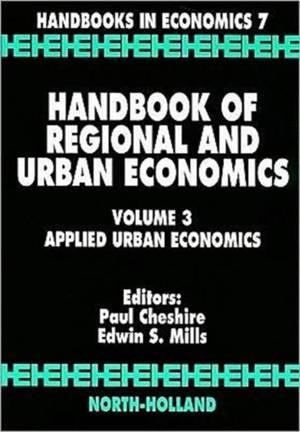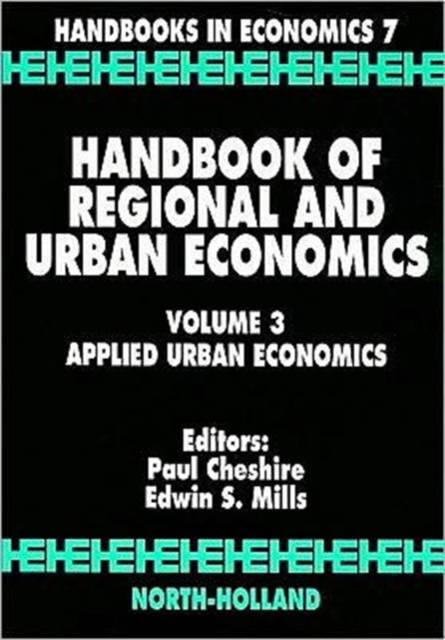
- Retrait gratuit dans votre magasin Club
- 7.000.000 titres dans notre catalogue
- Payer en toute sécurité
- Toujours un magasin près de chez vous
- Retrait gratuit dans votre magasin Club
- 7.000.0000 titres dans notre catalogue
- Payer en toute sécurité
- Toujours un magasin près de chez vous
Handbook of Regional and Urban Economics
Applied Urban Economics Volume 3
Description
There have certainly been important theoretical developments during the last decade, and they are surveyed at appropriate places in this volume. However, there has been an outpouring of high quality applied research in urban economics, as in other specialties. The reasons for the rapid growth of applied research are not difficult to identify; improved theoretical frameworks within which to do applied research; improved econometric techniques and software; more and better data; and, probably most important, ever cheaper computing power, which is being ever more widely distributed within the research community, providing increasingly easy access to and analysis of, data.
Selection and classification of topics to include in this handbook has inevitably depended on the editors' perceptions of subjects on which important research has been undertaken. It has also depended on the availability of authors who were able and willing to write critical surveys of large amounts of international research. An attempt was made to include authors and have them survey research from a variety of countries. However, there is still a US bias in applied urban research, partly related to the availability of data and computers but also to the sheer size of the US research community.
For more information on the Handbooks in Economics series, please see our home page on http: //www.elsevier.nl/locate/hes
Spécifications
Parties prenantes
- Editeur:
Contenu
- Nombre de pages :
- 800
- Langue:
- Anglais
- Collection :
- Tome:
- n° 3
Caractéristiques
- EAN:
- 9780444821386
- Date de parution :
- 01-10-99
- Format:
- Livre relié
- Format numérique:
- Genaaid
- Dimensions :
- 175 mm x 244 mm
- Poids :
- 1542 g

Les avis
Nous publions uniquement les avis qui respectent les conditions requises. Consultez nos conditions pour les avis.





